From Dust
Another world.
Game designers are gods, conceiving new realities before coding them into being. They set their dimensions and boundaries, the rules that bind them together and the shapes and colours that eventually fill them.
Then, when their creation is fully-formed, they invite us to step into these realities, to live under their designer vision, gifted with free-will, albeit one subject to the systems they have so meticulously arranged.
Eric Chahi, designer of Ubisoft’s forthcoming XBLA title From Dust, is just one such god. His seminal Amiga title, Another World – the game with which he found fame in 1991 - offered a gateway into another dimension where we could walk the contours of his imagination.
But while all games are god games, only some games are God Games.
Peter Molyneux first conceived of the idea of creating a reality in which the player could play as God. Populous – another Amiga title – set the player as steward of a populace, able to save or smite, bless or burn with touch of a divine cursor. And yet, the term God Game was always something of a misnomer. It implies power, dominion, freedom to exert one’s omnipotent will. But in almost every instance, God Games had us chasing after humans, running errands for them, micro-managing their wellbeing.
Perhaps for this reason, we grew tired of omnipotence. It was always a bit too much like babysitting, the creation ruling the creator. So Molyneux’s final stab at the genre, Black and White, became the last mainstream God Game in the orthodox sense (Spore was something else entirely). The genre’s creator, it seemed, was also its destroyer.
From Dust, then, is a title that works on various levels. In it you play as a God, raising a clutch of primitive tribesman from dust to glory. But this is also a game that seeks to resurrect its genre from a dusty grave, not to mention Chahi’s own career in the games industry, which has largely been in hiatus since 1998.
It starts before the beginning, before the word, with “The Breath”. The game opens at the foot of a totem pole on the edge of a remote peninsula. A gaggle of tribesmen and women encircle it, worshipping in their primitive tongue while frothing waves roll and roar around. The Breath is your reach into the world, your personification: a black dot stand-in for a mouse cursor, with a glowing fire tail snaking behind like a crimson streamer.
To begin with all you can do with the Breath is hoover up sand. Squeeze the L-trigger and you’ll scoop up the dust from the ground, forming a giant whisking ball of sand. Using the Breath cursor you can move and drop the sand, making a hill where before there was just a valley, a sinkhole where there was a plain.

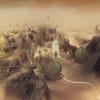
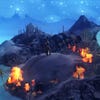
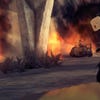

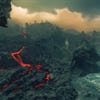




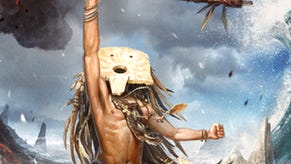
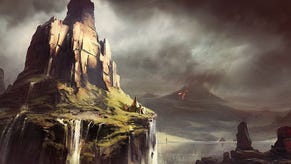



.png?width=291&height=164&fit=crop&quality=80&format=jpg&auto=webp)



